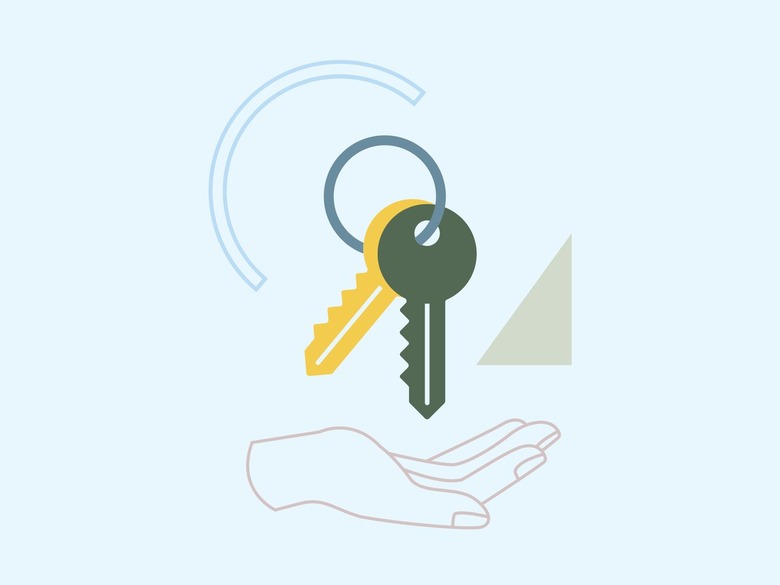16 Questions To Ask Before Hiring A Real Estate Agent
Finding a good real estate agent to help you with your home purchase is as important as finding a good lawyer to handle your legal affairs or a good contractor to remodel your house. As a marketing specialist, a good buyer's agent understands local market trends while being sensitive to your needs and should be able to help you select the closest home to your ideal home that is available in your price range. Even more important, the agent needs the chops to close the deal quickly.
The skill set to accomplish all of this doesn't come easily or without experience, but beyond being skillful, a good agent is also hardworking. The average real estate agent works a solid 36 hours per week (if not more) and has been on the job for nine years, which is long enough to establish a solid network of contractors, lenders and other support professionals you'll need during the buying process. Nearly two-thirds of real estate agents in the United States are female, and the vast majority are independent contractors affiliated with a brokerage firm.
The real estate broker's reputation and connections matter but not as much as those of the real estate agent, who will be the go-to person and personal representative for potential buyers throughout the real estate journey. The person you choose will probably become intimately familiar with your finances as well as your lifestyle, so you want someone you can trust and with whom you can relate. Asking these 16 important questions can help ensure you've found the right person to help you buy your dream home.
1. Can I See Your License?
1. Can I See Your License?
This question is so obvious that many people forget to ask it, but it's a vital one, especially if you're considering hiring someone unaffiliated with a brokerage firm. You don't want a scammer to have access to your sensitive information nor do you want to work with someone who approaches the homebuying process as a hobby. You won't have to worry about this if the agent is working with a brokerage firm, but verifying a real estate license is a concern if you're considering working with an unaffiliated real estate agent.
2. How Many Transactions Do You Complete Each Year?
2. How Many Transactions Do You Complete Each Year?
You want an agent familiar with home availability and market trends in your area of interest, and this question will also give you an idea of the agent's success rate. The median number of successful real estate transactions for real estate agents in 2019 was 12. A number significantly smaller than that is a red flag, while a larger number is a sign of a real estate professional with a solid network.
3. Can You Supply References?
3. Can You Supply References?
Get this question into the conversation early because a real estate agent without a list of satisfied homebuyers probably won't cut it for you either, and it's a good time to consider closing the conversation and moving on. Get phone numbers and be sure to make two or three calls. You'll get more information about the real estate agent than she is able to supply herself.
4. How Long Have You Been a Real Estate Agent?
4. How Long Have You Been a Real Estate Agent?
The average length of time for real estate agents to be active in the business is nine years, and the average tenure for agents working with brokerage firms is about four years of experience. An agent who has been active for longer than the average is more likely to have what it takes to close a deal, including negotiating skills and a well-established network. Twenty percent of active agents in the United States in 2020 had their licenses for less than a year, and since everyone has to start somewhere, it isn't necessarily a red flag if a new agent has been active for only a year or two. You'll want to make sure they make up for the lack of experience in other ways, though, such as by having fantastic references or a higher-than-average success rate.
5. With How Many Firms Have You Worked?
5. With How Many Firms Have You Worked?
Beware of agents who have been in the business for a long time but hop from firm to firm. The lack of stability can signify an inability to work well with others, and that could mean the agent won't work well with you either. An agent who has been with the same firm for years has roots in the community and is more likely to understand the market and how to establish your place in it. Remember that a home isn't just a material acquisition; it's also your stake in an existing community. A good real estate agent helps your introduction to that community be a smooth one.
6. Do You Work Alone or With a Team?
6. Do You Work Alone or With a Team?
Many agents work alone, and if they are busy, they don't necessarily have time to respond quickly when you need them. The result could be that you miss out on an attractive new listing because your agent took too long to contact the listing agent for a showing. That's far less likely to happen if your agent works with a team and can pass you off to another agent. On the other hand, an agent working solo may be a go-getter, and that will be evidenced by positive references and a record of successful transactions.
7. How Many Clients Do You Have?
7. How Many Clients Do You Have?
This is a follow-up to question six and will furnish an idea of how much time the agent will have to devote to you. An agent with a lot of clients who works alone may be good but may not be the best agent if you like personal attention. A busy agent who works as part of a team has more resources to devote to clients like you, but you have to be prepared when someone you haven't met calls to discuss listings or joins you at a showing. That can be disorienting, but you won't mind if the agent has disclosed at the outset the particulars of how she conducts business. On the other hand, you may find an agent who works solo and has plenty of time to devote to you, which is great as long as you can verify that her abundance of free time isn't because she isn't very much in demand. Check her references.
8. How Did Your Last Three Transactions Go?
8. How Did Your Last Three Transactions Go?
If you're ready to get into specifics about how the agent operates, a good way to get an overview is to ask about specific transactions. The answers should reveal knowledge about real estate market trends as well as the agent's general enthusiasm level. A confused or lackluster response probably means this particular agent isn't going to go to bat for you when the going gets tough. You could end up paying more than market value for your new home, your closing costs could be too high or the seller could neglect to complete repairs noted in the home inspection and get away with it.
9. Are You an Agent for Home Sellers as Well as a Buyer's Agent?
9. Are You an Agent for Home Sellers as Well as a Buyer's Agent?
There's an advantage to hiring someone familiar with both sides of the homebuying process, and such a savvy agent can help things proceed more smoothly and quickly. Top-notch real estate agents, however, tend to specialize in one or the other. At the very least, you want an agent who focuses mostly on buyers. Look for a ratio of at least seven to three in terms of buying and selling transactions.
10. How Long Will it Take Before I Can Move In?
10. How Long Will it Take Before I Can Move In?
On average, it takes from 30 to 60 days to find a house and from 14 to 60 days to proceed to closing once you find one. That's a maximum of four months, but it can vary depending on the area and the time of year (sales tend to happen more quickly in the summer). If the agent answers that the process can take six months to a year, you may have found one who works more slowly than most and tends to get bogged down, and you could end up being frustrated. On the other hand, an agent who claims it can happen in two months may be inexperienced.
11. Do You Work Full Time or Part Time?
11. Do You Work Full Time or Part Time?
Ideally, you want an agent who works full time, but there are plenty of competent contractors and other professionals who make a good supplemental income in real estate. If the agent works part time, though, be sure you get an assurance that your needs will be addressed promptly. Also be aware that part-time agents lack the infrastructure to expedite the processes that need to happen during a home purchase.
12. How Will We Stay in Touch?
12. How Will We Stay in Touch?
Some people prefer texting, and others prefer to speak on the phone. If texting isn't your thing, you want an agent who picks up when you call or responds promptly to voice messages. If the agent works with a brokerage firm, you want to be sure that there's a good mechanism in place for messages to be passed on when you contact the main office. Ideally, you'll want to stay in touch on a daily basis, especially if you're searching for a home in June, the busiest month for home sales.
13. How Do You Help Buyers in a Competitive Market?
13. How Do You Help Buyers in a Competitive Market?
This question explores the agent's strategies for determining a fair list price for the market and when to go beyond it. In a bidding war, the price may rise above what a comparative market analysis indicates is fair, and you'll want to make sure you and the real estate agent are on the same page. If you're the cautious type, you might not be comfortable working with an aggressive agent, or conversely, you might be frustrated working with a conservative agent if you're gung ho to get your new home at any cost. On the other hand, if you both lean in the same direction, you'll enjoy working together, and that will make life that much easier.
14. How Will You Determine Which Homes Suit My Needs and Preferences?
14. How Will You Determine Which Homes Suit My Needs and Preferences?
Some agents are intuitive types who work as if by magic to match clients to their dream homes, while others rely on technology to hunt down the right house. If you can find an agent who does both, you've hit pay dirt. Otherwise, it's best to go with an agent who works the same way you do, and to find out, you have to ask.
15. Do You Require Preapproval Before We Begin Looking?
15. Do You Require Preapproval Before We Begin Looking?
Many real estate agents do require a preapproval letter from a lender before they will work for you, and that's actually good for you because it saves you the disappointment of missing out on a great find because the seller requires the letter. You need to document your finances to get preapproval, so it can be a hassle. A good agent knows this but nonetheless requires the letter beforehand to avoid grief afterward.
16. Do You Have a Good Network?
16. Do You Have a Good Network?
At some point in the homebuying process, you'll need a professional, such as a good contractor, home inspector, or cleaner. It makes things so much easier if your agent has a solid, trusted network of people who provide these services. You won't have to waste time searching if the network is solid, and you'll get service more quickly than you would if you need to cold call. The longer an agent has been in the business, the more likely he will be to have such a network.


